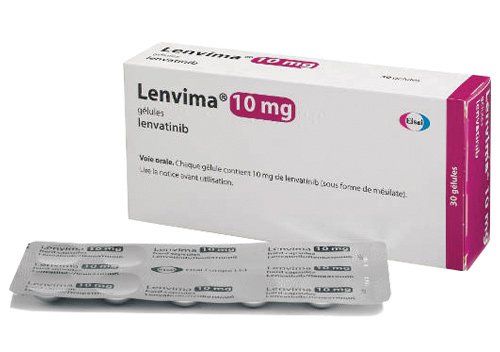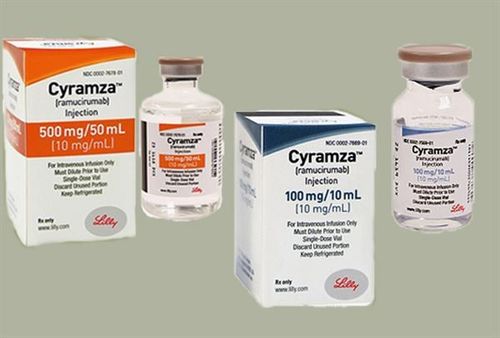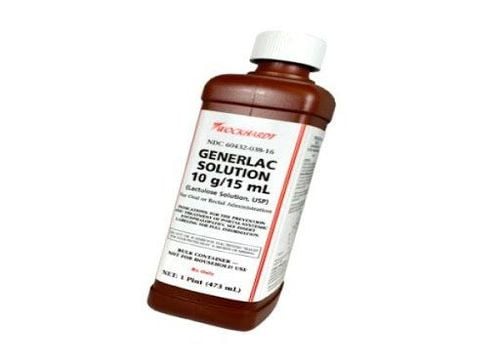This is an automatically translated article.
The article was written by MSc. Quach Thanh Dung - Department of Internal Oncology - Vinmec Times City International General HospitalHepatocellular carcinoma (HCC) is a malignancy that often occurs in the background of chronic liver disease and cirrhosis. The disease is often diagnosed late and has a poor prognosis and is difficult to treat.
1. Treatment methods for hepatocellular carcinoma
Treatment methods for HCC include: surgery, local treatment (percutaneous ethanol injection, radiofrequency/microwave ablation, hepatic embolization, external radiation) or other methods. systemic therapy (chemotherapy, targeted therapy, immunotherapy with immune checkpoint inhibitors).For cases of advanced liver cancer that metastasize, surgical methods or local treatment are no longer appropriate. Evolution of Systemic Therapy - Systemic palliation with conventional cytotoxic chemotherapy agents has not been routinely used in patients with advanced HCC for several reasons: HCC has been considered a a tumor that is relatively resistant to chemotherapy. This may partly be due to the high expression rates of resistance genes, including p-glycoprotein, glutathione S-transferase, heat shock protein, and mutations in p53.

2. Drugs for the treatment of metastatic hepatocellular carcinoma
There are currently many drugs approved for the systemic treatment of patients with advanced HCC.Sorafenib (Nexavar) is a multitargeted small molecule tyrosine kinase inhibitor (TKI) that inhibits the Raf kinase and vascular endothelial growth factor receptor (VEGFR) intracellular kinase pathways. Efficacy in the treatment of HCC has been demonstrated in several clinical trials such as the phase III SHARP study showing a survival benefit of Sorafenib compared with palliative care alone.
Lenvatinib (Lenvima, Eisai) is an oral TKI of fibroblast growth factor receptor (FGFR), VEGFR, PDGFR-α, rearranged in transduction (RET) and KIT. In a phase 3 trial, compared with sorafenib for overall survival (median OS, 13.6 months vs 12.3 months). In addition, lenvatinib demonstrated a statistically significant increase in ORR overall response rate compared with sorafenib (24.1% vs 9.2). As a result of this study Lenvatinib was approved as a first-line treatment for inoperable HCC in August 2018. Regorafenib (Stivarga, Bayer) is an oral TKI for the angiopoietin-1 (Tie2) receptor. , VEGFR, PDGFR and FGFR were studied by Bruix et al in patients progressing to Sorafenib. The trial (Regorafenib for patients with advanced HCC on Sorafenib) demonstrated an improvement in mean regorafenib survival compared with placebo (10.6 months vs 7.8 months) ). Regorafenib was approved by the FDA based on this multinational study in patients previously treated with Sorafenib. Cabozantinib (Cabometyx, Exelixis) is a small molecule TKI with activity against c-Met, VEGFR-2, AXL, and RET. Abou-Alfa and colleagues studied cabozantinib versus placebo in patients with advanced HCC following sorafenib. They noted an improvement in overall survival (10.2 months versus 8.0 months). From this trial, the FDA approved cabozantinib for the treatment of advanced HCC following failure of sorafenib. It is worth noting that 27% of the patients had received 2 prior systemic agents, including Sorafenib, prior to the cabozantinib trial. This particularly makes cabozantinib an agent of choice for second-line treatment in advanced HCC.

Ramucirumab (Cyramza), an anti-VEGFR-2 monoclonal antibody, has been studied in patients with advanced HCC or who are intolerant to Sorafenib. Results of the randomized, controlled REACH-2 trial were published in 2018. This study examined the efficacy of Ramucirumab versus placebo in 292 patients with advanced HCC with AFP levels above 400 ng/ mL. Based on the REACH-2 trial Ramucizumab is awaiting FDA approval for the treatment of advanced HCC. HCC is an immunogenic cancer, as demonstrated in part by the presence of tumor-infiltrating lymphocytes in the tumor microenvironment, and by the immune and systemic dysfunction associated with cirrhosis. Monoclonal antibodies targeting cytotoxic T-lymphocyte protein 4 (CTL-4), programmed cell death-1 (PD-1) and apoptosis ligand 1 (PD-L1) have showed activity on many malignancies, including gastrointestinal cancers. Nivolumab (Opdivo), a PD-1 inhibitor, was approved by the FDA in September 2017 for the treatment of HCC following previous Sorafenib therapy. Approval was based on the results of a phase 1/2 extended and increased dose trial (CheckMate-040), in which nivolumab was tested in patients with advanced HCC with or without treatment. prior therapy with sorafenib.... A phase 3 trial (CheckMate-459) of nivolumab compared with sorafenib for first-line treatment of HCC is underway.

Pembrolizumab (Keytruda, Merck), another PD-1 inhibitor, was tested in a global phase 2 trial following progression or intolerance to Sorafenib with similar overall response rates as nivolumab. Based on the results of the KEYNOTE-224 trial, the FDA approved Pembrolizumab in November 2018 for patients who had previously received Sorafenib. Efficacy is being demonstrated in large phase 3 studies (KEYNOTE-240 and 394). Atezolizumab (PD-L1 inhibitor) in combination with bevacizumab (VGEF inhibitor monoclonal antibody) showed overall survival (OS) of 42% and progression-free survival (PFS) of 41% compared with with Sorafenib. Imbrave150 is the first immunotherapy phase 3 study to show improvement in overall survival and progression-free survival in patients with previously untreated inoperable or metastatic HCC. compared with sorafenib. In summary, HCC is a malignancy with a poor prognosis. However, now there are many targeted drugs, immunotherapy drugs have been put into use as well as a number of other drugs being tested. The trial promises to bring more effective treatment for HCC patients.
Vinmec International General Hospital is one of the hospitals that not only ensures professional quality with a team of leading medical doctors, modern equipment and technology, but also stands out for its examination and consultation services. comprehensive and professional medical consultation and treatment; civilized, polite, safe and sterile medical examination and treatment space.
Please dial HOTLINE for more information or register for an appointment HERE. Download MyVinmec app to make appointments faster and to manage your bookings easily.














